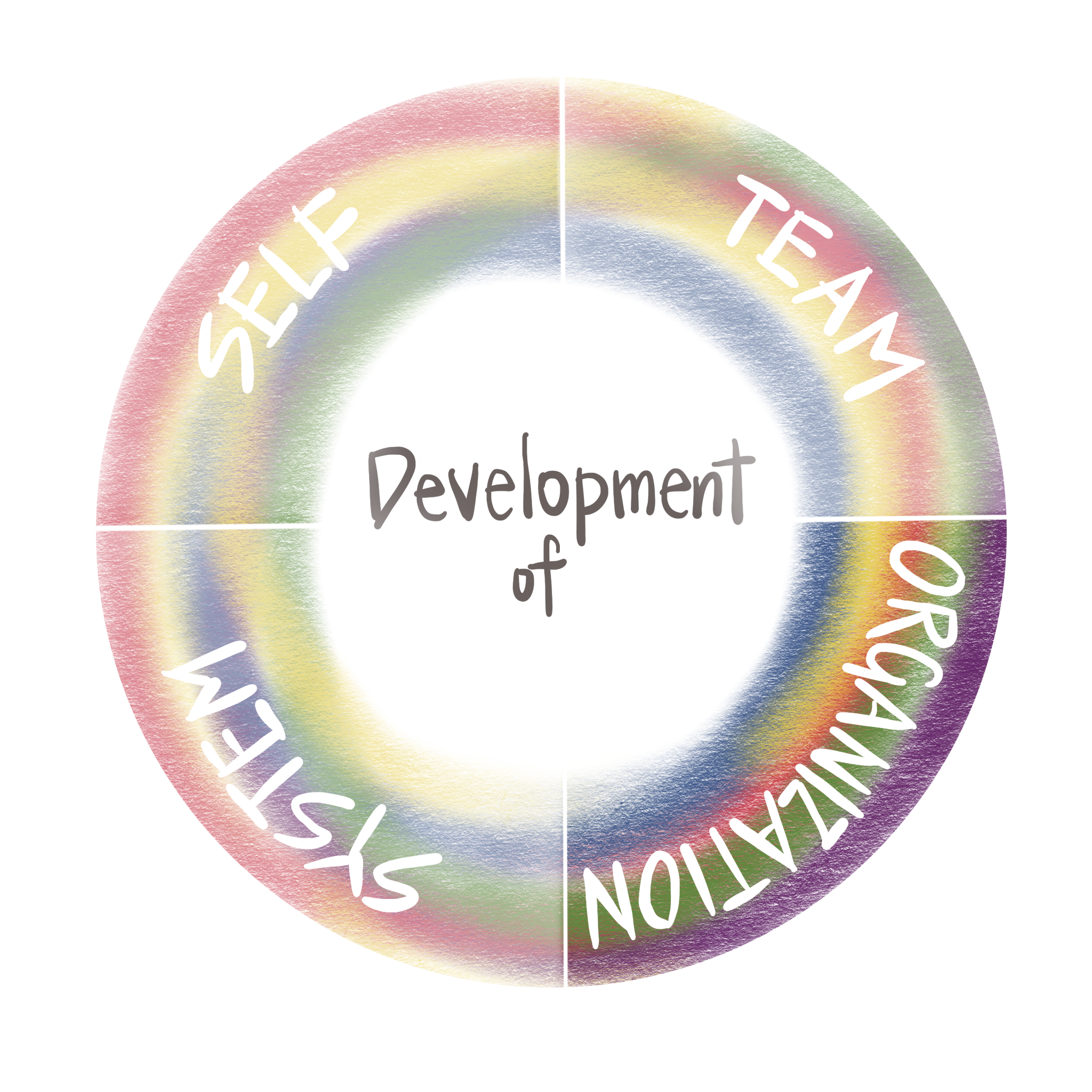
Engaging Stakeholders Around
Complex Problems

Core Challenge: How do we engage stakeholders in addressing complex problems together?
No individual, organization, sector, or even country can fully address complex problems alone. We see this reality play out all the time, when sincere efforts to tackle a pressing issue fall disappointingly short of expectations.
But partnering with stakeholders from multiple sectors can be fraught with challenges. These include differences in cultures, regulatory requirements, missions, resources, timeframes, risk tolerance, communication styles, and values.
Despite these potential barriers, “When set up well, and under the right conditions, a collective action effort can achieve more-than-the-sum-of its parts results” (Global Development Incubator’s report “More Than the Sum of Its Parts: Making Multi-Stakeholder Initiatives Work”). One of these conditions is an awareness of how complex adaptive systems work. This knowledge can help stakeholders:
- Build partnerships
- Coordinate their activities
- Take effective actions
- Learn from each other and from the experience
Why we must change

Excerpted from “We Can’t Keep Meeting Like This: Developing the Capacity for Cross-Sector Collaboration” by Mille Bojer
From climate change to AIDS, from culture clashes to poverty, we are faced with complex, global problems. These problems have many causes and many manifestations, and multiple different players have different kinds of influence over them. Cause and effect are distant in time and space and not easily discernible. The causes themselves have many causes of their own and are often interlinked and reinforce each other: Poverty causes AIDS, AIDS causes poverty, and both poverty and AIDS are causes of the rise in the number of vulnerable children.
Because of this complexity, solutions directed at one part of the system, without a view of the whole, can compound problems in another part: The prospect of climate change increases use of biofuels which leads to food shortages which lead to increased deforestation which in turn compounds carbon emissions and increases climate change.
This is the reality of the messes we are coping with in the globalized world of the 21st century. There is no one button or leverage point that we can press to make these problems go away. They require us to work out creative and systemic solutions by not only communicating but also learning and collaborating across sectors, levels, and cultures. We just can’t get out of these situations separately.
Three Sets of Capabilities
Three sets of capabilities, among many others, can be useful for engaging stakeholders to address complex problems. In this module, explore how to join with others to:
To successfully gain traction on a complex challenge, you and your team need to join with representatives from different parts of the system to share perspectives, form a picture of the whole, and create a vision of a possible future.
Learn More
Successful organizations are well versed in tackling what Harvard Kennedy School’s Ron Heifetz and his colleagues refer to as “technical challenges.” Unfortunately, many of today’s problems fall into what they call “adaptive challenges.”
Learn More
One thing has become clear from efforts to make headway on complex challenges: It isn’t possible without collective leadership within and between various stakeholder groups. Collective leadership means that everyone involved assumes shared responsibility for working together toward a common vision.
Learn More

Additional Resources
- The Dawn of System Leadership
- How to work with people you don't like: Lessons learned from Canadian negotiator Adam Kahane
- Place of Power: Lessons from the Great Bear Rainforest
- The Reos Change Lab: Addressing Complex Challenges with Social Innovation
- Global Development Incubator: More Than the Sum of Its Parts: Making Multi-Stakeholder Initiatives Work
- We Can’t Keep Meeting Like This: Developing the Capacity for Cross-Sector Collaboration
- GEM Toolkit
- Systems Thinking: A View from the Trenches
-
“I’m very conscious of the fact that you can’t do it alone. It’s teamwork. When you do it alone you run the risk that when you are no longer there nobody else will do it.”
- Wangari Maathai
-
“The power of one, if fearless and focused, is formidable, but the power of many working together is better.”
- Gloria Macapagal Arroyo
-
“There are big problems that change the world. If we are working together, that will make us understand each other, appreciate each other, help each other.”
- Jack Ma
-
“Saving our planet, lifting people out of poverty, advancing economic growth... these are one and the same fight. Solutions to one problem must be solutions for all.”
- Ban Ki-moon